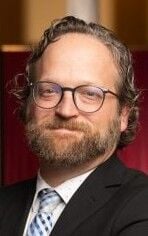
CHARLESTON – The administrative director of the West Virginia Supreme Court of Appeals has implemented a hiring freeze following a $5.5 million cut in funding.

Hoover
In a recent letter to some administrative court staff, Keith Hoover said the freeze applies to all open positions and hires within the judicial branch. That includes probation officers, law clerks and court reporters. Those three positions typically have the highest turnover rates.
At the time of the freeze, there were 52 vacancies in the court system statewide.
The Supreme Court requested $146.2 million for its budget, but the Legislature appropriate $5.5 million less than that request. The Supreme Court budget is used to pay the salary of more than 16,000 court employees across the state.
“There's no question that just based on the difference between what we asked for and what was appropriated, there is going to be some important positions that may not be able to be filled,” Hoover told WCHS-TV. “At the end of the year, the numbers have to match up and we have to be able to spend within the parameters the legislature set for us.”
Hoover said there are more than 60 current vacancies in the system. He said the court hopes lawmakers will fund necessary positions with a supplemental appropriation.
“In recent years, the Supreme Court has taken pride in its proper stewardship of state resources,” Hoover’s June 5 memo begins. “We strive for open communication with the Legislature, adhere to sound budgeting practices, have adopted and follow governance and purchasing policies, and maintained transparency in fiscal decisions. Our budget submissions have been narrowly and conservatively calculated to ask only for the funds necessary to operate the judicial branch of state government.
“Through our budget and operations, the Supreme Court is committed to the shared goal of administering a highly effective and efficient judicial system. We recognize and respect that under the West Virginia Constitution, the Legislature has the ultimate authority as to the judiciary’s budget. In exercising that authority this year, the Legislature appropriated $5.5 million less than the $146.2 million requested in our budget submission for the Supreme Court’s Personal Services line-item. These funds pay for the salaries and benefits of over 1,600 court employees statewide in all fifty-five counties of the state. This 3.77% decrease is significant.”
As a result, Hoover says the court has to take “prudent, proactive” steps. That includes the freeze on new hires effective immediately. He said it applies to all open positions and hires within the judicial branch.
“The Supreme Court will continue to use all existing funds to meet current obligations, and we will continue to seek additional appropriations from the Legislature to allow us to resume standard practices,” Hoover wrote. “Your work is crucial to serving the citizens of our state through our judicial system. The Supreme Court appreciates you, and we hope to be able to convince the Legislature to fully fund all of these necessary judicial positions by supplemental appropriations for the 2026 fiscal year and in the budgets approved for subsequent fiscal years.”
According to Supreme Court Communications Director Jared Hunt, the court’s employee benefits/personal services spending, which was where the $5.5 million was cut, has increased with the successive 5% across-the-board pay raises for state employees over recent years, plus other benefits cost increases and increased expenses from the recent legislation that added additional judges and magistrates. And, the court’s non-employee costs have remained relatively flat at $24-25 million over the past five budget years.
The cost of the increased judges, magistrates and support staff with the judicial realignment that went into effect January 1 is a little more than $4 million. Most of those increases (all except the BRIM premiums) were to be funded through the personal services line item that was cut.
In addition, Hunt says the court only has enough funds to continue Family Treatment Courts through the end of September.






